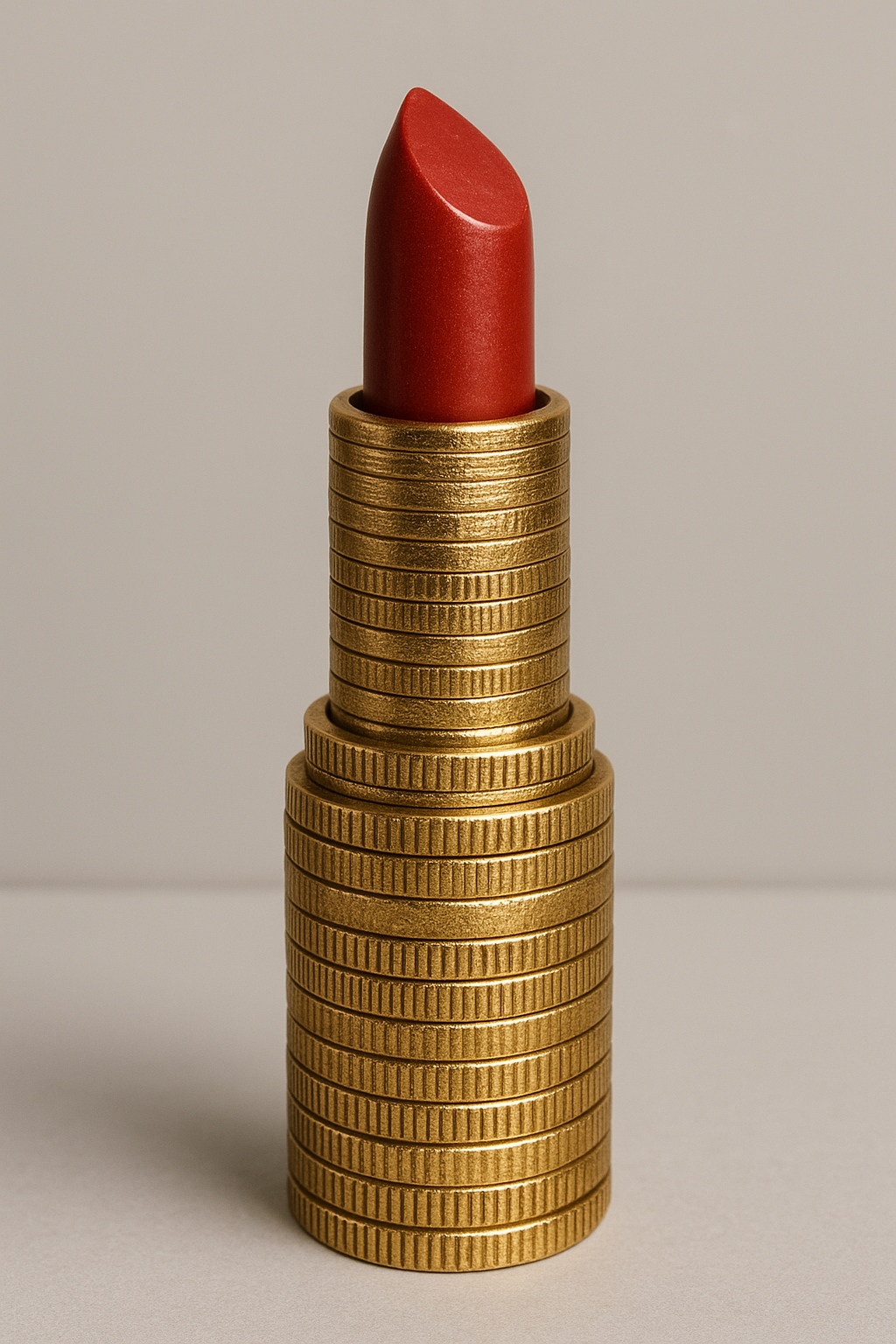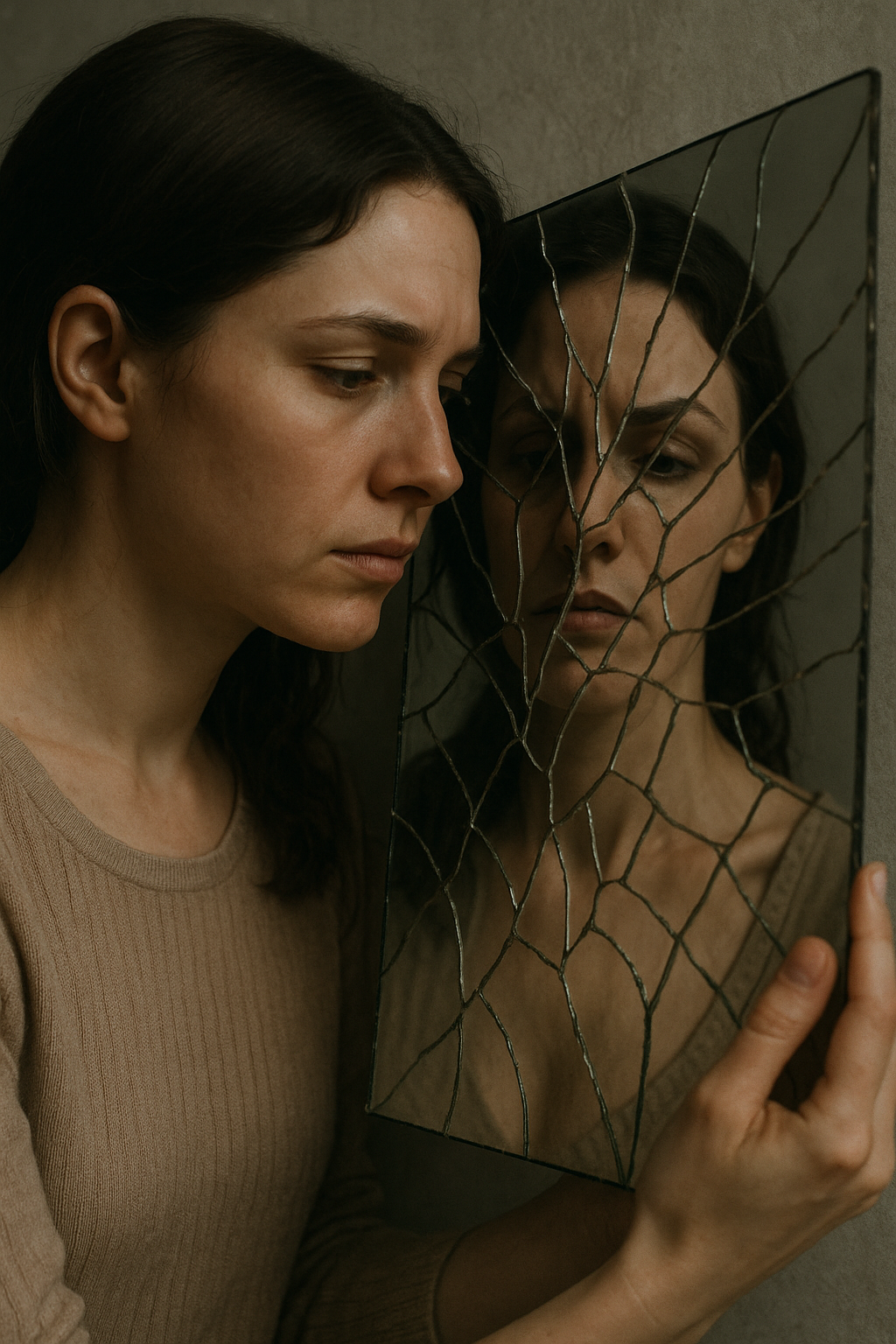The Insecurity Economy: Why Beauty Is Rarely a Good Investment
True beauty whispers quietly, it is the strength of confidence and the grace of character.
Beauty, contrary to what we’re sold, is rarely a good investment. In fact, it often works against us. I’ve always been drawn to critical conversations about beauty, not just as an aesthetic ideal, but as a system that shapes inequality, fuels insecurity, and distorts self-worth.
Many well-intentioned feminists try to soften beauty’s influence. They remind us that everyone is beautiful, that it’s simply about how we feel, that reclaiming beauty is empowerment. But the reality is more complicated: beauty matters …a lot… in society. The question is, how much does it matter, and at what cost?
Two things can be true at once. Research shows that physical appearance significantly shapes our opportunities and experiences. Yet if your goal is long-term happiness, fulfilment, and genuine self-esteem, beauty is a poor investment.
In this post, I want to unpack the complicated relationship between women and beauty. Some of what I’ll share isn’t pleasant or politically correct; it draws on evolutionary psychology and observable behaviour patterns. If you’re looking for comforting slogans, this might not be the space for you. But if you’re open to confronting uncomfortable truths with honesty and empathy, then keep reading.
The Early Programming
From early childhood, girls receive a steady stream of messages that their value lies in how they look. The first comments they hear are rarely about their curiosity, kindness, or intelligence, it’s usually, “What a pretty dress,” “Beautiful hair,” or “Such a cute smile.” These small moments of praise may seem harmless, but they build a framework: appearance equals worth. By the time many women reach adulthood, they’ve internalised the belief that their desirability is their most important currency.
This conditioning breeds dependency. For many women, self-esteem hinges on consistent external validation: reassurance that they are still beautiful, still desirable, still attractive, especially in the eyes of men. When that validation is absent, confidence begins to erode. This is not a superficial insecurity; it’s the outcome of years of programming that ties female identity to appearance. Understanding this isn’t just important for women; it’s critical for men too, because in most women’s internal hierarchy of self-worth, a man’s opinion about her attractiveness often carries disproportionate weight.
Storytime: Growing Up Different
My own story with beauty took a different path. I grew up in Vienna, surrounded by a culture that celebrated a distinctly European aesthetic. As the only Black student in both my primary and middle schools, I was acutely aware that I stood out, but not in ways that aligned with conventional beauty standards.
Instead of trying to conform, I chose another route. I told myself, “If I can’t blend in, I’ll stand out for the right reasons.” I poured my energy into academics, not out of obligation but because I genuinely loved learning. My worth wasn’t tied to how I looked; it was tied to my curiosity, my personality, and my drive. That became my source of popularity and likeability, both in school and later in adulthood.
Of course, I received compliments on my appearance over the years, and I am fully aware of my attractiveness. It would be disingenuous not to acknowledge that, or the privileges I’ve benefited from because of it. But even then, those compliments never resonated as deeply as when someone praised my intelligence, my character, or my bold, sometimes crazy personality.
Looking back, I’m grateful that my environment forced me to develop a different value system. I learned early on that beauty was not my only, or even my primary, asset. And I thank my younger self for accepting her looks as they were, without trying to mould them into a European ideal. Somehow, even as a child, I understood that there was more power in cultivating the parts of me that couldn’t be measured by a mirror.
The Timing Factor & The Ageing Anxiety
Many women move through life in phases that are closely tied to how society perceives their attractiveness. According to cultural norms, a woman’s “most valuable” years are her late teens to late twenties - a window often considered her peak of beauty and desirability. Biologically, this period does align with fertility: women are at their most fertile, with reproductive systems at their highest efficiency. Evolutionary psychology suggests this is why youthfulness is subconsciously prized in nearly every culture.
But biology is only part of the story. The real weight comes from how societies have built value systems around this biological reality, rewarding young women with attention, opportunities, and validation, while treating ageing as a threat to their worth. The consequences are profound:
Though youth fades, the spirit does not age
The Expiration Date Effect: Many women internalise the idea that their attractiveness, and by extension, their value has an expiration date. This breeds a sense of urgency in their twenties and early thirties to “maximise” their beauty while it lasts.
The Ageing Anxiety: Women often experience deep anxiety about losing visibility and relevance. Ageing becomes framed not as a natural process, but as a decline, something to resist at all costs with products, procedures, or surgeries.
Shifting Power Dynamics: Research shows that men’s social value often increases with age as they gain status, resources, and influence. Women, in contrast, are pressured to maintain youthful beauty, leaving them vulnerable to a double standard where ageing diminishes their perceived worth.
Emotional Toll: This dynamic can fuel feelings of inadequacy, depression, and resentment. Women may find themselves constantly chasing external validation that becomes harder to secure as they age, leaving them less satisfied in the long run.
The tragedy here is that women are conditioned to invest their energy into beauty, that is guaranteed to depreciate. And because society doesn’t place equal emphasis on qualities that strengthen over time, like wisdom, confidence, empathy, or professional expertise, many women are left feeling as though their best years are behind them just as they are stepping into their prime in every other sense.
A Personal Note on Age & Appearance
I’m in my mid-thirties, but I look extremely young and petite… if I wanted to, I could still shop in the teen section. Most people assume I’m in my early to mid-twenties, and with that comes a certain privilege. I’m acutely aware of the doors it opens, the attention it invites, and the way it shapes how people perceive me. It’s a reminder that beauty, and especially youthful beauty, is a form of currency in our culture. But it’s also a reminder of how fragile and conditional that currency really is.
The Data Behind Beauty & Age
Research consistently shows that beauty and age are not just superficial concerns; they tangibly shape women’s life outcomes:
Hiring & Income Bias: Studies have found that attractive people earn, on average, 12–14% more than their less-attractive peers. For women, this advantage is strongly tied to youthful appearance; the wage premium often declines after the age of 30–35.
Dating & Marriage Markets: A large-scale analysis of online dating data (OkCupid, 2018) revealed that women’s attractiveness ratings peak between ages 18–29, after which men’s interest declines sharply. In contrast, men’s desirability tends to peak later, often in their late 30s to early 40s, reflecting the double standard around ageing.
Mental Health Impact: The American Psychological Association reports that women experience significantly higher rates of “appearance-related anxiety” as they age, with nearly 70% of women over 30 expressing dissatisfaction with signs of ageing.
These statistics paint a stark picture: society rewards women for youth and punishes them for age in ways that extend beyond dating into careers, social value, and self-esteem. This creates a pressure cooker of expectations, pushing women toward cosmetic procedures, restrictive diets, and endless beauty regimens in an attempt to “freeze time.”
The danger is not just financial or physical, it’s psychological. When women are taught to view ageing as a loss of worth, they risk tying their entire sense of self to something fleeting. And the cost of that is lifelong anxiety, diminished confidence, and, in many cases, missed opportunities to invest in qualities that grow richer with age.
The Validation Marketplace
Women live in what can be described as a constant marketplace of validation. Social media has amplified it, but the dynamic existed long before Instagram likes and TikTok views. From school hallways to boardrooms, women compete, - sometimes consciously, often unconsciously - for attention, recognition, and approval.
In this economy, attention equals value. When you understand this, behaviours that might otherwise seem narcissistic or irrational - posting endless selfies, obsessing over compliments, or competing with other women for male attention - make far more sense. These behaviours are not about vanity alone. They are survival strategies in a world where visibility and validation are treated as currency.
The Fragility Factor
Because this marketplace ties female self-worth so closely to external validation, female egos are often more fragile than male egos. Men can anchor their confidence in achievements, skills, or resources, things that accumulate and compound over time. Women, by contrast, are taught to hinge self-esteem primarily on appearance and desirability, which inevitably decline with age.
This fragility creates real consequences. Withholding attention from women can have a much deeper impact than most men realise. Where men might shrug off being ignored, women often experience it as rejection that cuts at the very core of their identity.
Toward a Healthier Understanding
Recognising these dynamics is not about blame, it’s about clarity. Beauty is powerful, but it is also fleeting, fragile, and often weaponised against women. When we reduce women’s worth to appearance, everyone loses: women are trapped in anxiety, men are trapped in shallow interactions, and society as a whole misses out on the deeper contributions women bring when they are free from this narrow cage.
The goal of understanding female psychology and beauty isn’t to manipulate or exploit; it’s to build healthier relationships, stronger communities, and more compassionate self-awareness. When we stop treating beauty as a woman’s primary asset, we free women to invest in what truly lasts: intelligence, creativity, empathy, resilience, and character.
That is the kind of investment that compounds over a lifetime; the one I chose to make in myself from a very young age. No amount of make-up, no number on a scale, no Instagram filter, and no compliment from a man can rival the confidence I’ve built in my own worth and natural beauty. As Barack Obama once said of Michelle, it doesn’t matter how often he tells her she is beautiful; if she cannot see it for herself in the mirror, his words mean nothing. Because in the end, true beauty is the quiet power of self-acceptance, the glow of confidence, and the depth of character.
Self-acceptance is the only mirror that never cracks.
“True beauty is the quiet power of self-acceptance, the glow of confidence, and the depth of character.”


